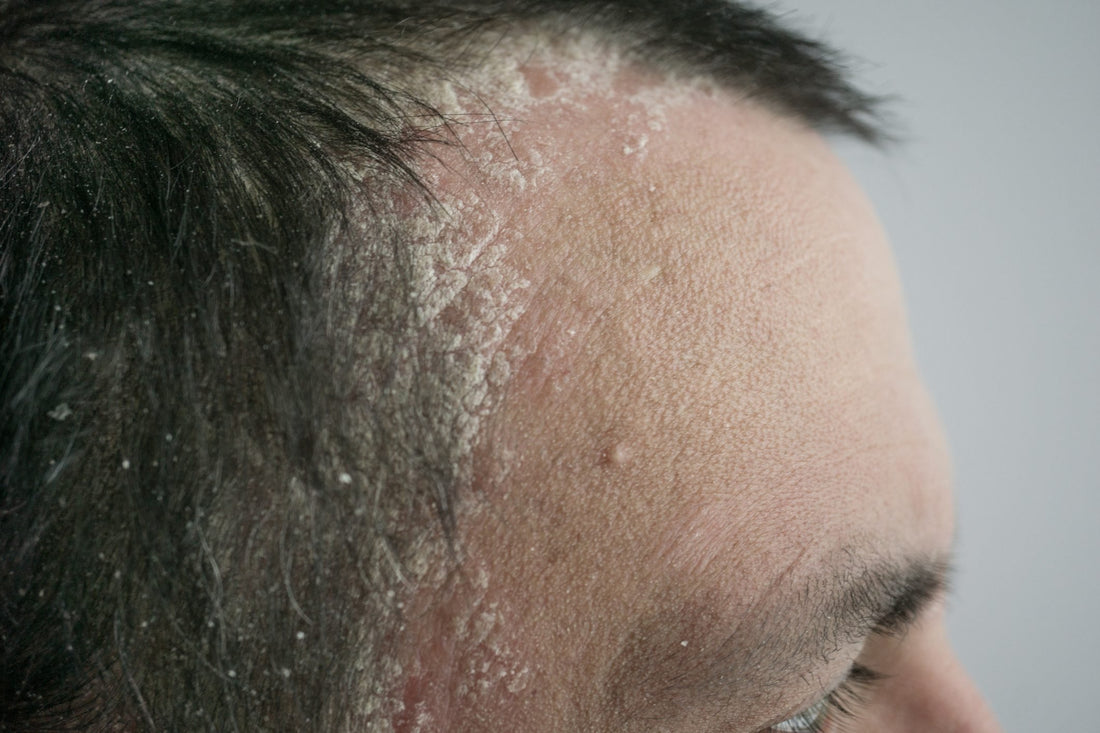Psoriasis is more than just a skin condition; it's an experience that extends beyond the physical symptoms, touching the lives of those affected in profound ways. Often misunderstood, this chronic autoimmune disease leads the body to produce skin cells at an accelerated rate, resulting in thick, red, scaly patches that can be both painful and itchy. While it can appear anywhere on the body, scalp psoriasis, in particular, presents a unique set of challenges, affecting not only the appearance and health of the hair but also the emotional and psychological well-being of those dealing with it.
What is Psoriasis?
At its core, psoriasis is a persistent autoimmune condition characterized by the rapid buildup of skin cells. This accumulation leads to scaling on the skin's surface, with the scales typically appearing as red patches that are sometimes covered with white or silvery scales. It's not contagious, but it is chronic, and the severity and coverage can vary greatly from one individual to another.
How Psoriasis Affects the Hair and Scalp
Scalp psoriasis, specifically, can be particularly distressing due to its visibility and effect on hair health. The scales can extend beyond the hairline, causing discomfort and making hair care and styling a challenge. In severe cases, the buildup of scales can lead to hair thinning or loss, not necessarily from the psoriasis itself but from the constant scratching or harsh removal of the scales.
The thickness of the scales can also create a barrier, making it difficult for treatments to penetrate the skin on the scalp effectively. Moreover, the visible nature of scalp psoriasis can discourage people from haircuts, salon visits, or social interactions, leading to a cycle of isolation and emotional distress.
The Emotional Impact
The emotional toll of psoriasis can be as debilitating as the physical symptoms. Living with a condition that's so visibly apparent can lead to feelings of self-consciousness, embarrassment, and social anxiety. The chronic itching and discomfort can disrupt sleep and daily activities, leading to frustration, stress, and in some cases, depression.
The unpredictability of flare-ups adds another layer of emotional strain, making it hard for individuals to feel in control of their condition and their lives. It's crucial, then, to address not only the physical symptoms of psoriasis but also the psychological impact, ensuring a holistic approach to management and care.
Managing Psoriasis: A Holistic Approach
While there's currently no cure for psoriasis, various treatments can help manage the symptoms and reduce flare-ups. Topical treatments, light therapy, and systemic medications can offer relief for physical symptoms. For scalp psoriasis, specially formulated shampoos and topical treatments like our Pre-Exfoliating Scalp Treatment can help loosen and remove scales, reduce inflammation, and soothe itching.
Equally important is addressing the emotional aspect of psoriasis. Support groups, therapy, and open conversations with friends, family, and healthcare providers can make a significant difference in managing the psychological impact. Learning to manage stress through techniques like mindfulness, meditation, or exercise can also help mitigate flare-ups and improve overall well-being.
Final Thoughts
Psoriasis, particularly when it affects the scalp, is more than a skin condition; it's an experience that impacts every facet of an individual's life. Understanding the multifaceted nature of psoriasis is the first step toward effective management. By addressing both the physical and emotional aspects, individuals can find strategies that provide relief and support, paving the way for a fulfilling and comfortable life despite the challenges psoriasis may bring.


